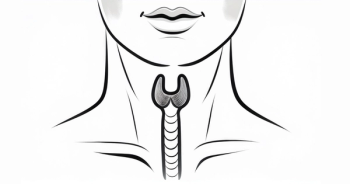
Discussing the Overtreatment of Thyroid Cancer
Yuri E. Nikiforov, MD, PhD, discusses the over treatment of thyroid cancer and why the incidence of this disease has been increasing over the past few decades.
Yuri E. Nikiforov, MD, PhD, professor of pathology and vice chair of Department of Pathology at the University of Pittsburgh Medical Center, discusses the over treatment of thyroid cancer and why the incidence of this disease has been increasing over the past few decades.
In the thyroid cancer space, overtreatment can be a major issue. The biggest issue is that overdiagnosis leads to overtreatment. Over the past 20 years or so, everybody was getting ultrasounds and biopsies, which ultimately led the rate of thyroid cancer to go up.
However, with the reclassification of encapsulated follicular variants of papillary thyroid cancer (EFVPTC) to noninvasive follicular thyroid neoplasm with papillary-like features (NIFTP), the overtreatment of thyroid cancer has decreased. This new histology of the thyroid, NIFTP, became reportable to the field of thyroid cancer in 2016 and with this reclassification, more treatments and follow-up are no longer necessary.
TRANSCRIPTION:
0:08 | In the last 20-25 years, the incidence of thyroid cancer has been growing very fast. Mortality stays the same with just a minimal increase because we detected a lot of tumors that have very low malignant potential, or they have even no malignant potential, or they are very low. There are things we can do to not over treat patients.
0:47 | NIFTP in fact, is 1 of the ways how we can deescalate this treatment and minimize unneeded additional treatments and additional therapy for patients. Over the last several years, we started to see the trend for decreasing the incidence of thyroid cancer. Obviously it is difficult to be sure as it has complex factors, but we believe that both a decrease in medical surveillance, and NIFTP reclassification are factors that help us to start seeing a systematically decreasing incidence of thyroid cancer in the United States and all over the world.










































